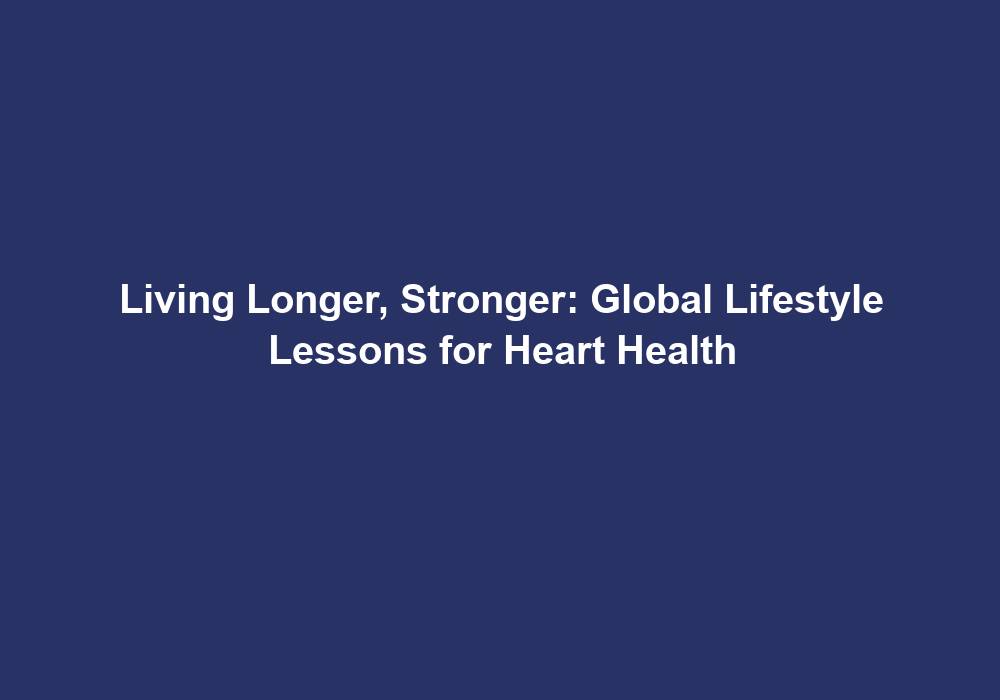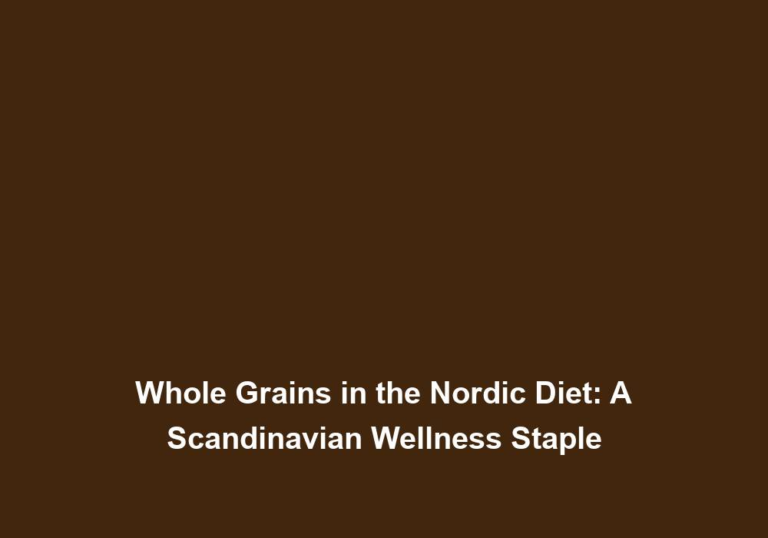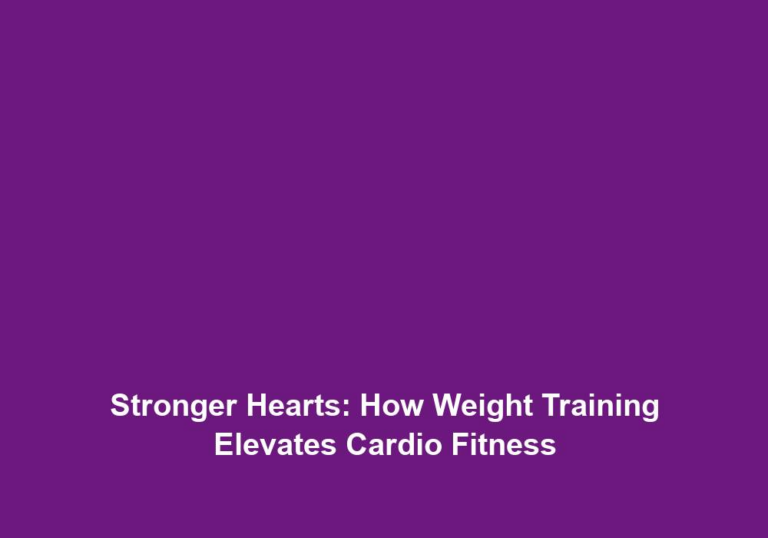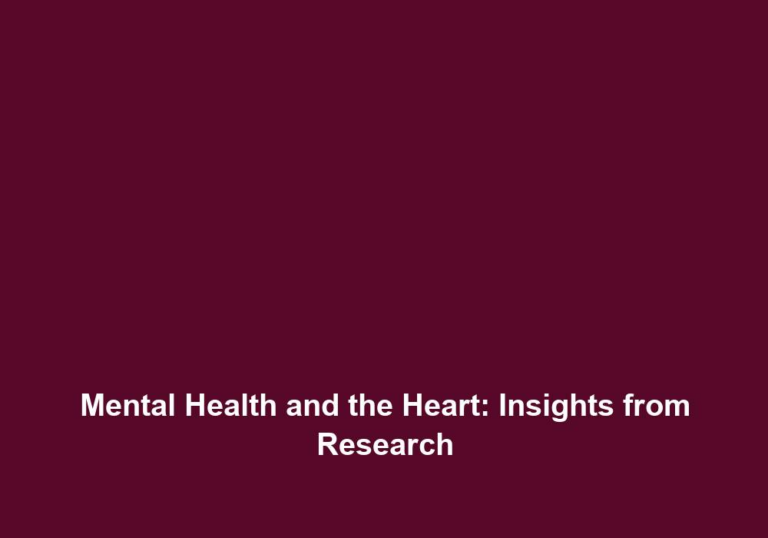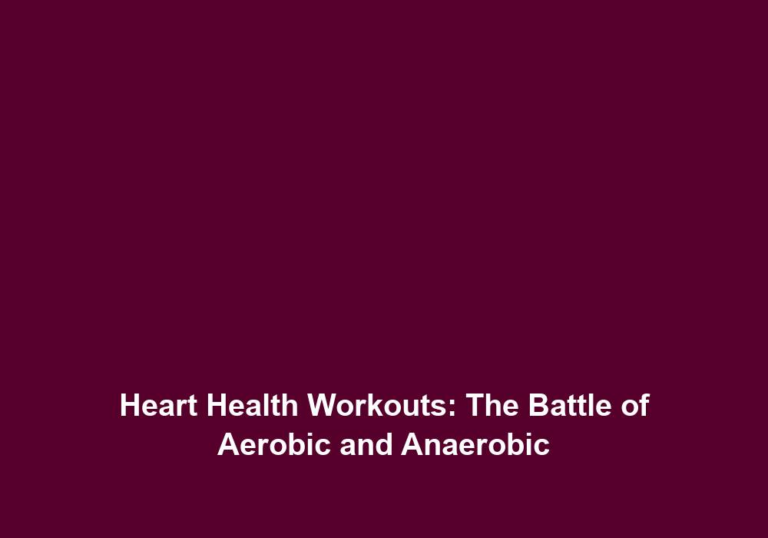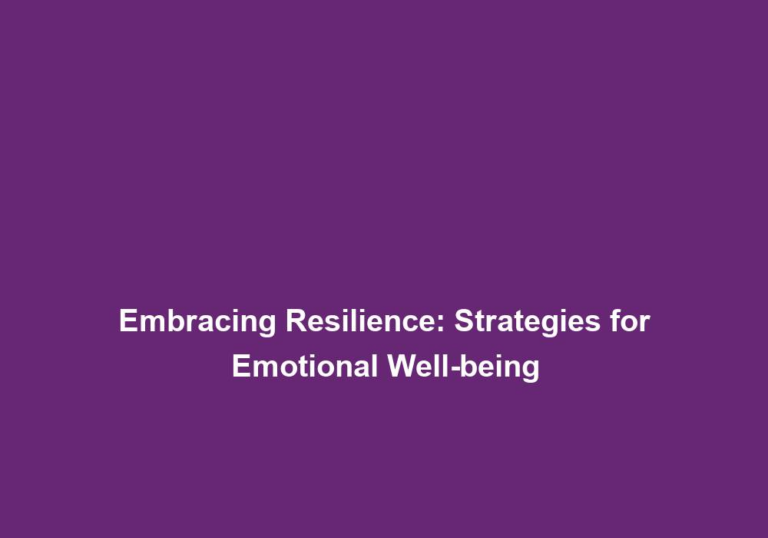Living Longer, Stronger: Global Lifestyle Lessons for Heart Health
In today’s fast-paced world, the importance of maintaining a healthy heart cannot be emphasized enough. Heart disease continues to be a leading cause of mortality worldwide, with millions of lives lost each year. However, there are valuable lessons we can learn from different global lifestyles that can significantly improve heart health. This article will explore various strategies and practices from around the world that can help us live longer and stronger.
Mediterranean Diet: A Heart-Healthy Approach
One of the most well-known and studied diets when it comes to heart health is the Mediterranean diet. Originating from the countries bordering the Mediterranean Sea, this diet is rich in fruits, vegetables, whole grains, nuts, and healthy fats, such as olive oil.
Benefits of the Mediterranean Diet for Heart Health:
- Abundance of antioxidants, vitamins, and minerals in fruits and vegetables: These nutrients help reduce inflammation and promote cardiovascular health.
- Healthy fats found in olive oil and nuts: These fats contribute to reducing the risk of heart disease by improving cholesterol levels and reducing inflammation.
- Lean proteins, like fish and poultry: These proteins are healthier alternatives to red meat, as they are lower in saturated fats.
- Moderate wine consumption: Red wine, when consumed in moderation, has been associated with a lower risk of heart disease due to its antioxidant properties.
- Limited intake of processed foods and sugary beverages: These foods and drinks are often high in unhealthy fats, added sugars, and artificial ingredients, which can contribute to heart disease risk.
Research has shown that following a Mediterranean diet significantly reduces the risk of heart disease and stroke. The combination of the above-mentioned factors contributes to the overall heart-healthy benefits of this diet.
Mindful Eating: A Lesson from Asia
In many Asian cultures, mindful eating is deeply ingrained in their traditions. It involves being fully present and aware of every bite, savoring the flavors, and paying attention to hunger and fullness cues. This practice extends beyond just the act of eating; it includes the whole experience of preparing and enjoying meals.
Benefits of Mindful Eating for Heart Health:
- Slower eating: Mindful eating encourages individuals to eat at a slower pace, giving the brain more time to recognize satiety signals. This helps prevent overeating and promotes maintaining a healthy weight, which is essential for heart health.
- Healthy food choices: By being mindful, individuals can make more conscious and informed choices when it comes to their food. This means focusing on nourishing foods rather than mindless snacking or emotional eating, which can contribute to heart disease risk.
By adopting mindful eating habits, individuals can reduce the risk of developing heart disease. This practice promotes a healthy relationship with food, prevents overeating, and allows for better digestion.
Regular Physical Activity: From the Nordic Countries
The Nordic countries, known for their beautiful landscapes and active lifestyles, provide valuable lessons on the importance of regular physical activity. Whether it’s skiing, hiking, or simply embracing the outdoors, the Nordic people prioritize staying active throughout their lives.
Benefits of Regular Physical Activity for Heart Health:
- Weight management: Engaging in regular exercise helps maintain a healthy weight, which is important for heart health.
- Blood pressure control: Regular physical activity can help lower blood pressure, reducing the risk of heart disease.
- Improved cholesterol levels: Exercise has been shown to increase levels of HDL (good) cholesterol and decrease levels of LDL (bad) cholesterol, promoting heart health.
- Strengthened heart muscle and enhanced blood circulation: Regular exercise helps strengthen the heart muscle, making it more efficient at pumping blood. This improves overall cardiovascular health and reduces the risk of heart disease.
Incorporating activities such as walking, cycling, swimming, or joining fitness classes can have a profound impact on heart health. The Nordic approach to physical activity serves as an inspiration for individuals worldwide to prioritize regular exercise for a healthy heart.
Social Connections: The Secret of the Blue Zones
The Blue Zones are regions around the world where people live longer and healthier lives than average. One common factor found in these areas is the strong emphasis on social connections and community engagement. These communities prioritize spending time with loved ones, participating in communal activities, and maintaining a sense of belonging.
Benefits of Social Connections for Heart Health:
- Stress reduction: Nurturing social connections helps reduce stress levels, which is important for heart health. Chronic stress can contribute to the development of heart disease.
- Lower blood pressure: Engaging in social activities and maintaining strong relationships has been linked to lower blood pressure levels, reducing the risk of heart disease.
- Improved overall well-being: Strong social ties provide emotional support, which is vital in preventing heart disease. Having a support system and a sense of belonging contribute to better mental health and overall well-being.
Engaging in activities such as volunteering, joining clubs, or simply spending quality time with friends and family can have a positive impact on heart health. The Blue Zones serve as a reminder of the importance of social connections in promoting a healthy heart.
Conclusion
By incorporating these global lifestyle lessons into our daily routines, we can significantly improve our heart health and increase our chances of living longer, stronger lives. Embracing the Mediterranean diet, practicing mindful eating, engaging in regular physical activity, and nurturing social connections all play vital roles in maintaining a healthy heart. Let us take inspiration from different cultures and make conscious choices that prioritize our cardiovascular well-being. Remember, it’s never too late to start living healthier!

